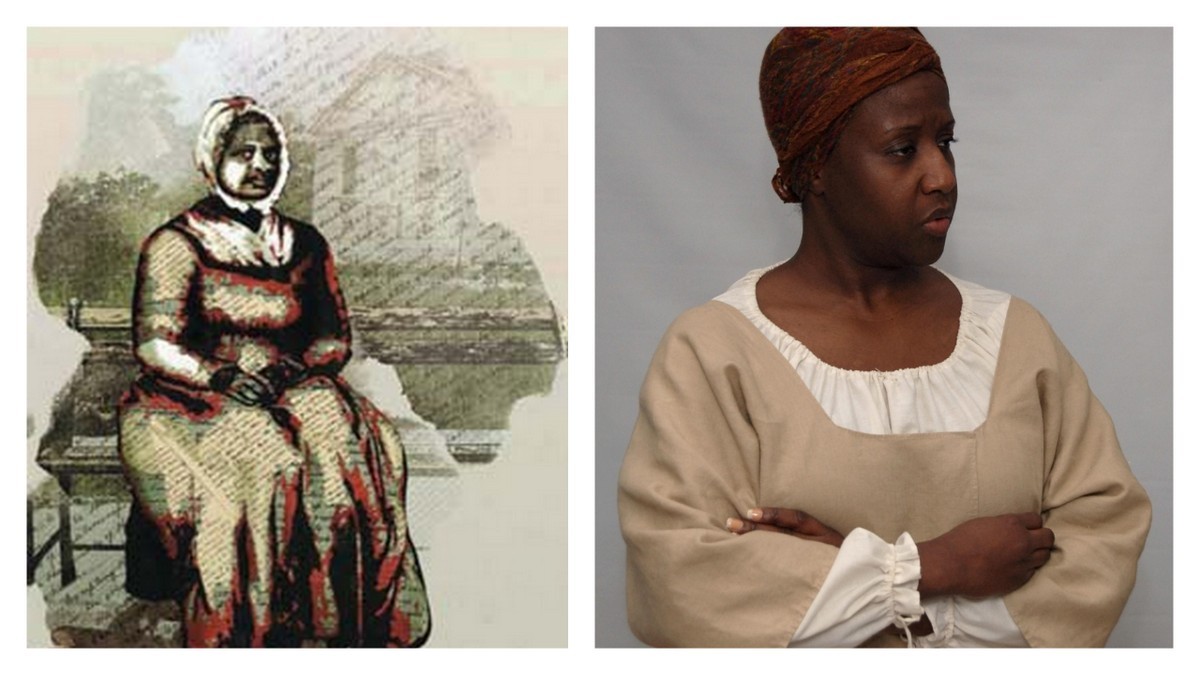Crumbling of Slavery in Massachusetts Celebrated on 'Elizabeth Freeman Day'| 04:50PM / Wednesday, August 16, 2017 | |
 Tammy Denease, right, will perform a dramatic re-telling of 'Mumbet's Story,' the story of Elizabeth 'Mumbet' Freeeman, left, as part of Mumbet Day on Aug. 20. Tammy Denease, right, will perform a dramatic re-telling of 'Mumbet's Story,' the story of Elizabeth 'Mumbet' Freeeman, left, as part of Mumbet Day on Aug. 20. |
SHEFFIELD, Mass. — On Aug. 21, 1781, in Sheffield, slavery began to crumble in the Commonwealth of Massachusetts when Elizabeth "Mumbet" Freeman successfully sued for her freedom from slavery more than 80 years before the Emancipation Proclamation.
On Sunday, Aug. 20, The Trustees of Reservations will host a day of activities to celebrate the story of Elizabeth Freeman at the Ashley House in Sheffield. Activities will include guided tours of the Ashley House and a performance by storyteller and actress Tammy Denease, with her dramatic re-telling of "Mumbet's Story."
Preceding the afternoon performance, the public is invited to follow in the footsteps of Elizabeth Freedom on her walk to freedom. At 10 a.m., the annual "Walk to Freedom," co-sponsored by Crow Flies Press, will depart from the Ashley House and walk north to the historic home of Theodore Sedgwick in the village of Sheffield, where, at 11:30 a.m., state Rep. Smitty Pignatelli will read the proclamation that freed Mumbet from slavery. Shuttles will return walkers to the Ashley House for the afternoon activities.
At noon, barbecue and refreshments will be served at the Ashley House, and guided house tours will run from noon to 2 p.m. At 2:15 p.m. Denease will perform a dramatic re-telling of Elizabeth Freeman’s story.
The Colonel John Ashley House, where Elizabeth Freeman was enslaved, was built in 1735 and is the oldest house still standing in the Berkshires. It came into the care and protection of The Trustees, the nation's oldest statewide land conservation organization, more than 40 years ago. With it came one of the most incredible stories of liberty and freedom to come out of Massachusetts: the intertwined lives of Col. John Ashley, a patriot and author of the Sheffield Resolves – a pre-revolutionary petition against British tyranny and manifesto for individual rights – and Elizabeth Freeman, an African-American woman enslaved in the Ashley home from the time she was a child, and who was inspired by that same manifesto of equality and freedom.
It was while she worked in the Ashley household that Freeman first overheard the ideals compelling the American Revolution through conversations between Col. Ashley and his political colleagues. She eventually sued for her own freedom with an argument based on those same ideals, and the court decision that freed her also set a legal precedent to ultimately end the institution of slavery in Massachusetts.
The Ashley House is open for tours during July and August on Sundays at noon and 1 and 2 p.m., or by appointment for groups larger than 10. Check out the self-guided exhibit in the Interpretive Center next to the house, which is open daily. Visitors can also walk the trails of nearby Bartholomew’s Cobble, a National Natural Landmark and which was once owned by Col. Ashley.
|

